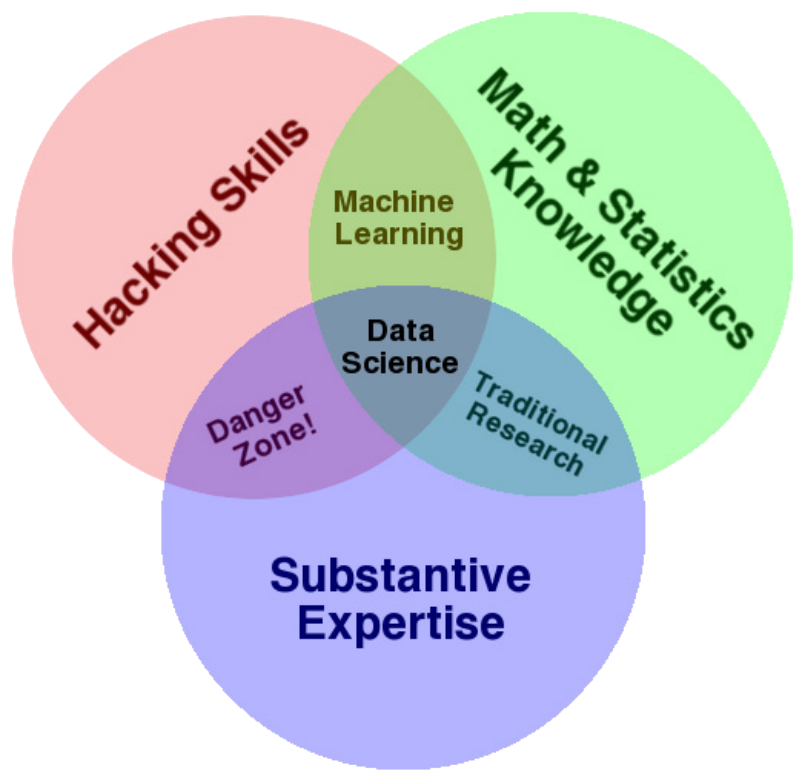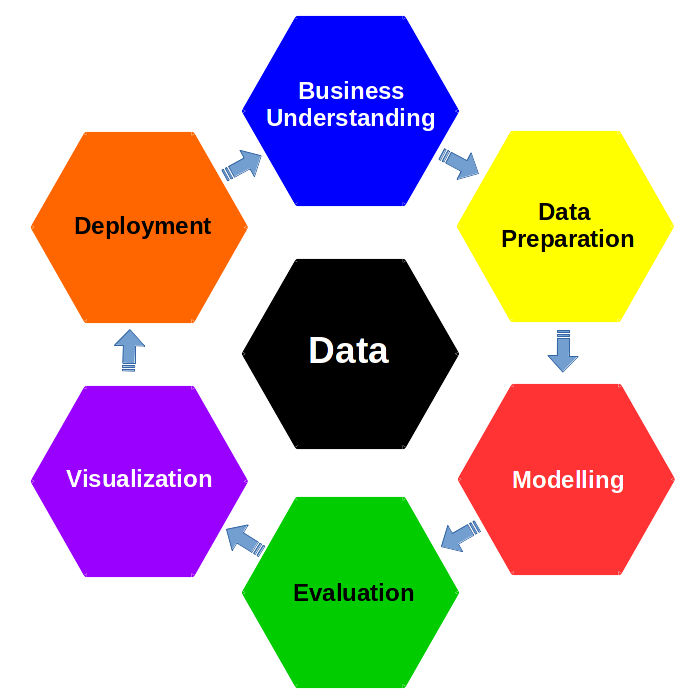The Data Science Lab (DSLAB)
Advancing Foundations and Applications of Data Science
Based at University Rey Juan Carlos (Madrid, Spain), the Data Science Lab (DSLAB) is a high-performance research group dedicated to pioneering advancements in the Foundations and Applications of Data Science.
Our research pursues three core objectives:
Our Focus: The Science of Data
DSLAB centers its efforts on Data Science. We recognize it as a critical interdisciplinary field merging Mathematics & Statistics Knowledge, Hacking Skills (computational/engineering abilities), and Substantive Expertise from specific application domains. This convergence of skills, essential for a true Data Scientist, is often visualized as shown in the accompanying diagram.
Our primary goal is to research and develop the sophisticated tools, foundational knowledge, and practical skills necessary for the successful execution of Data Science projects. This involves navigating the complete Data Science lifecycle —encompassing stages from Business Understanding, Data Preparation, Modelling, and Evaluation, through to Visualization and Deployment—, often represented cyclically.
We achieve this by both innovating in statistical and machine learning techniques and designing/evaluating analytical applications that improve expert practices across diverse fields.
 Interdisciplinary nature of Data Science skills
Interdisciplinary nature of Data Science skills
 Typical Data Science project lifecycle
Typical Data Science project lifecycle
Core Research Areas
Our work, supporting the entire data lifecycle illustrated above, is structured around two fundamental and complementary pillars: Data Engineering and Data Analytics.
Data Engineering: Building the Foundation
This area addresses the challenges of managing large-scale data, focusing on efficient storage, representation, transformation, computation, and parallelization. It is responsible for the development, construction, testing, and maintenance of robust Big Data architectures and technologies.
Within Data Engineering, we concentrate on:
Data Analytics: Extracting Insights and Value
This area focuses on uncovering valuable information hidden within data through the development and application of advanced models, classification techniques, prediction algorithms, and visualization methods.
Within Data Analytics, we specialize in:
